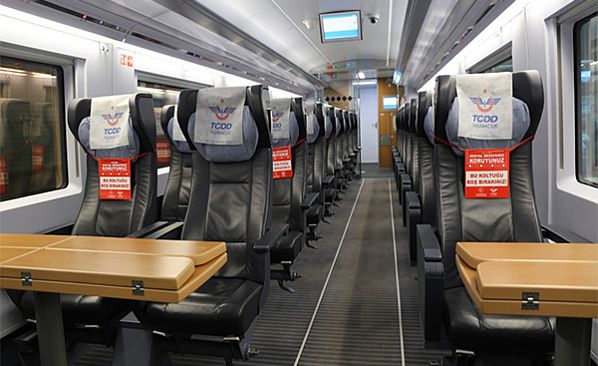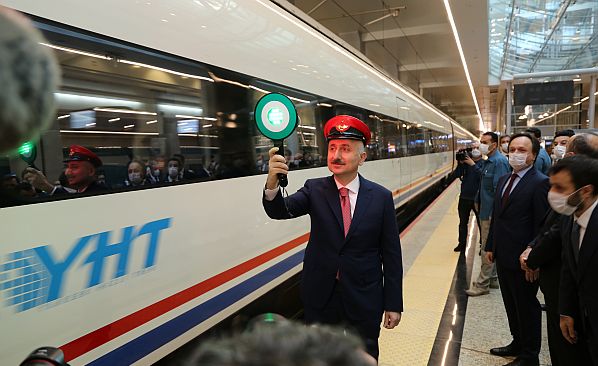High-speed and long-distance train services were withdrawn in Turkey on March 28, although commuter services continued to operate in Ankara and Istanbul, as part of the country’s measures to prevent the spread of coronavirus.
Turkey’s minister of transport and infrastructure, Mr Adil Karaismailoğlu, says that thanks to the decrease in the speed of the epidemic, the normalisation of rail transport can begin but with a number of safeguards.
Only people who have received a special HEPP code from the Ministry of Health’s mobile application or via SMS and have a travel document will be able to travel. It will be mandatory to wear a mask in stations and on trains. Passengers who show signs of illness at stations and ticket check points will not be allowed to travel, and passengers who exhibit Covid-19 symptoms during the journey will be taken to a special isolation place on the train and will be obliged to leave the train at the next station. There will be no on-board catering.
“There will be no sale of tickets to those who are impaired by the health authorities or who are unable to obtain a HEPP code,” Karaismailoğlu says.
Train tickets can be only be purchased from TCDD’s mobile application or website or contactless machines. Tickets will not be sold via the TCDD call centre or at station ticket offices.
TCDD will run 16 trains per day on its Ankara - Eskişehir - Istanbul, Ankara/Istanbul - Konya high-speed lines. TCDD normally operates 44 trains per day during the winter and 48 in the summer months.

In order to meet social distancing rules, more than half the seats on each train will be blocked off. “We will seat 185 passengers in our CAF trains which have a 411 passenger capacity and 213 passengers in our Siemens trains which have 483 seats,” Karaismailoğlu says. “There is no increase in ticket prices because our trains are running at 50% capacity. Hopefully we will start to reintroduce our domestic national electric trains as soon as possible.”

